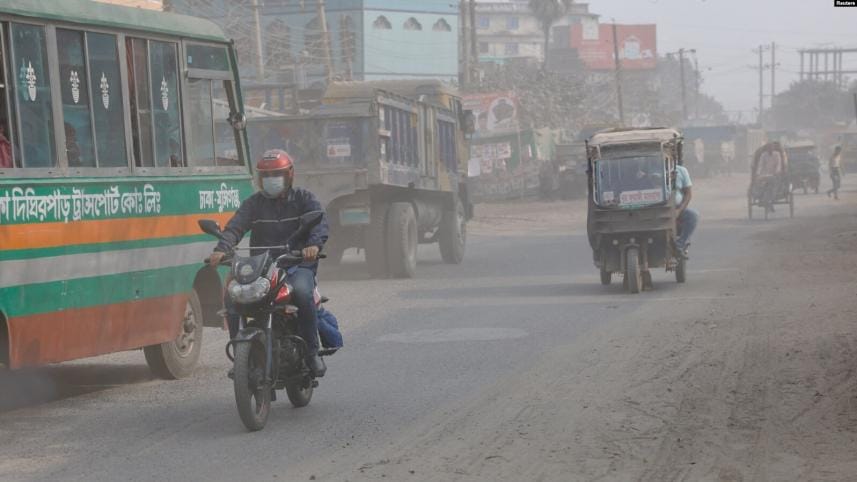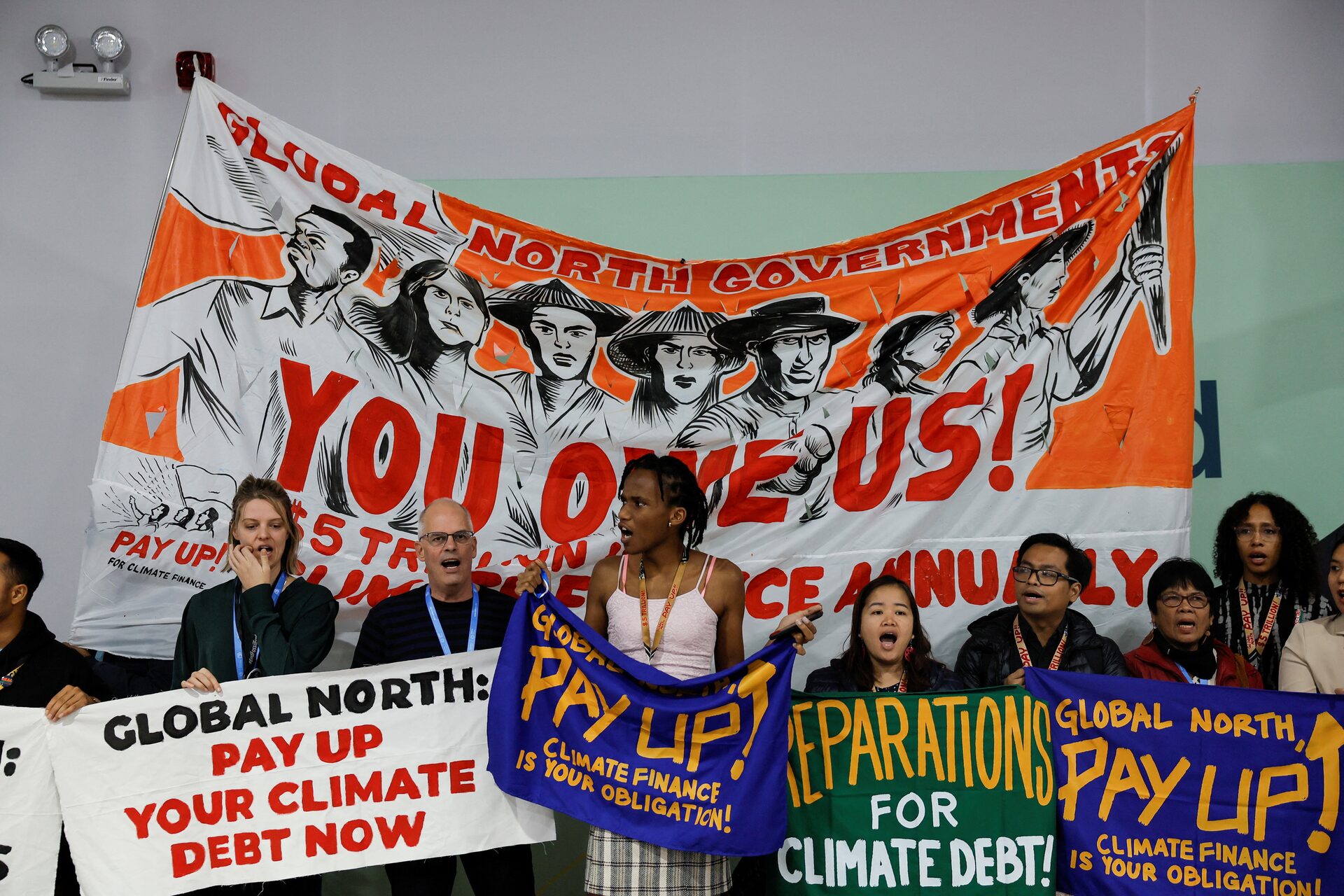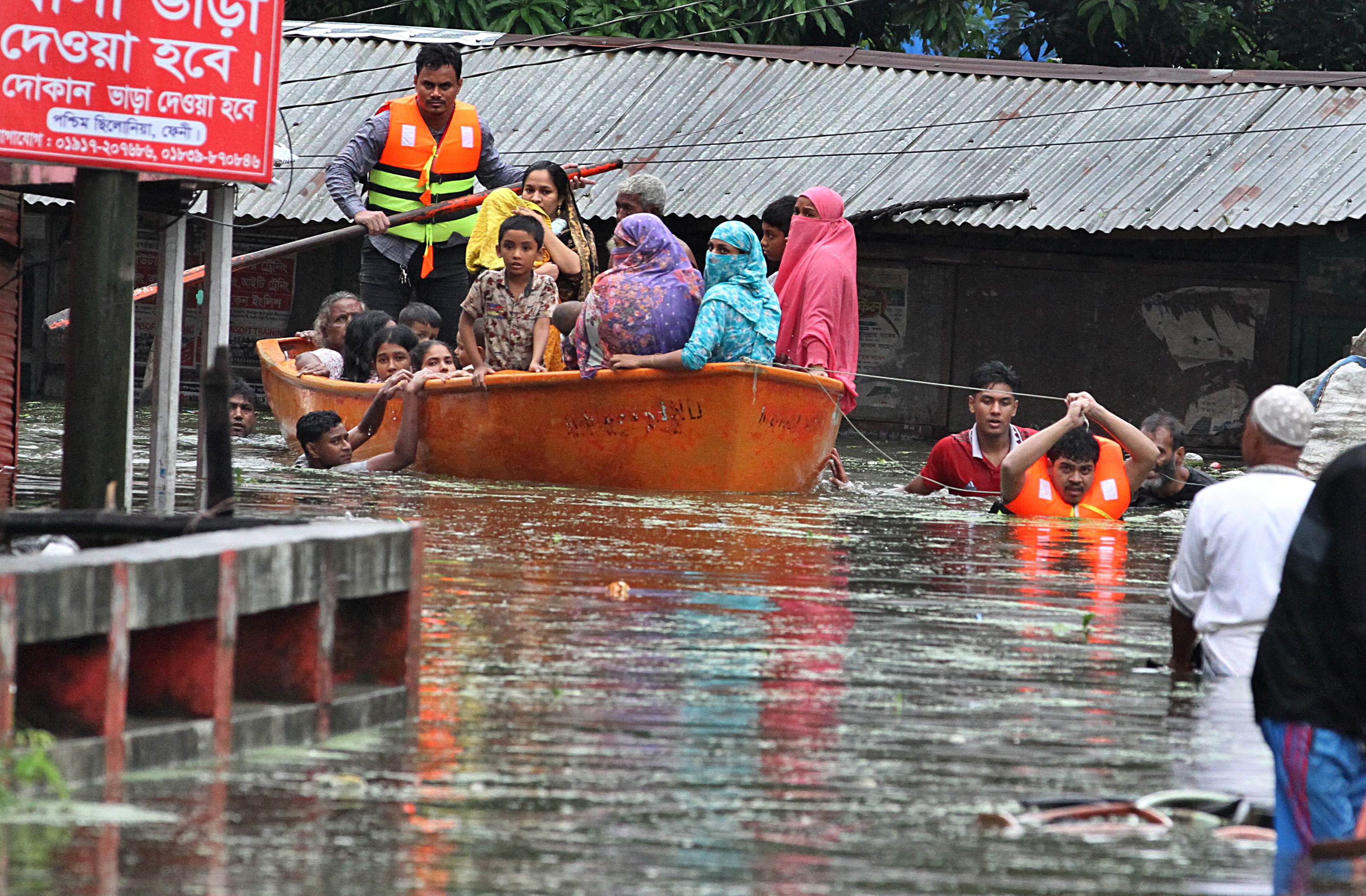Post COP29 environmental challenges for the interim govt

Bangladesh is facing several hazards on the environmental front. Some of these challenges are immediate, and others are looming on the horizon. The new interim administration will at some point need to address a few of them and tackle them as soon as the more pressing issues have been resolved. While law and order and stabilisation of the macroeconomic sector must receive the highest priority, environmental catastrophes are only around the corner.
Bangladesh's air quality is among the world's worst. How did we achieve this distinction? Deaths from dengue fever have peaked. As per the Global Climate Risk Index 2021, Bangladesh ranked as the seventh extreme disaster risk-prone country in the world. Our dependence on carbon-generating fossil fuels has worsened in the last 15 years. Buzzwords such as "energy transition," "green energy," and "carbon neutrality" were given lip service, while the ruling class were consolidating their grip on the creaky levers of power and laundering money abroad.
The interim government led by renowned economist and social entrepreneur Prof Muhammad Yunus has promised to look afresh at all the deviant practices and kleptocratic policies pursued by the previous Awami League administration. His adviser in charge of the Department of Environment, Forests and Climate Change is Syeda Rizwana Hasan, a lawyer and environmental activist. She has publicly declared her intention to tackle pollution, protect wetlands, and curb single-use plastics, but the full agenda is yet to be enunciated.
It would not be too much to assert that Prof Yunus is one of the original environmentalists. When I first met him in March, 1976 at the annual gathering of the Bangladesh Economic Association, held at Dhaka University's TSC, he was discussing his ideas on small-scale rural banking, but he also brought up the possible spillover effects of his proposed initiative, particularly the overall health and environmental benefits of his microcredit movement.
Befitting his lifelong commitment to improving the well-being of the masses, Prof Yunus took the time to make an appearance in Baku, Azerbaijan, to advocate for the Loss and Damage Funds for addressing the ill effects of climate change, and to espouse the cause of adaptation and mitigation in developing countries.
Soon after the new government took charge in early August, the flooding in the eastern districts once again reminded us of our dependence on the mercies of nature. Now, we are battling two other environmental and health issues: air pollution in the major cities and the dengue fever epidemic. In the coming weeks, these seasonal curses will affect urban dwellers, particularly the lower-income and other vulnerable groups.
Amidst all these, the environmental adviser recently expressed her confidence that litigation might be an effective tool for reducing global warming and controlling carbon emissions. In an interview with a foreign news outlet, she also expressed her concern about the current state of climate negotiations and the resources available for adaptation and mitigation. While the adviser rightly expressed concern that global ambition on climate change is regressing, one has to also wonder what went wrong.
The recent setbacks must be assessed in light of the conditions on the ground. Bangladesh might have taken the slippery path of command and control policy in environmental management. This strategy leads to a dead-end if we over-litigate. Our courts and the judicial system are already overwhelmed with cases of criminal and civil law violations. For a cleaner environment, there are more effective and less costly interventions. Some of these policies are better enforcement of existing laws and the use of modern and digital monitoring tools.
In a research paper, "Regulatory or market pressures: What promotes environmental grandstanding in Bangladesh?" published in June 2024, quarterly data from official sources show regulatory fines were found to have no significant effect on the adoption of effluent treatment technology. The study also shows regulatory fines did not affect technology adoption. In addition, possessing voluntary certifications increased exports while constructing new effluent treatment plants did not. Green finance on the other hand affects the adoption of treatment plants and voluntary certifications.
Therefore, the interim advisers need to optimise the available institutions, both national and international. At the recently concluded COP29 in Baku, Azerbaijan, an additional $300 billion commitment was made for developing countries. Bangladesh is a rightful claimant to this new funding, but "to date, climate financing from external sources to Bangladesh is yet to come in size despite significant global commitment," says an Asian Development Bank (ADB) report. The private sector is still in the early stage of engagement, especially in climate adaptation. Increased domestic resource mobilisation will be essential to increase fiscal space for climate finance, as well as for other development priorities, such as human resources development.
Bangladesh could team up with other smaller nations heavily impacted by global warming and changes in weather patterns. This group would do well to bring its vulnerabilities to the attention of the international agencies that are entrusted with the task of disbursing the new funds. While our country is one of the most climate-sensitive ones, we have to be constantly on the lookout for issues we need to address as well as innovative ways to finance them. The previous government, fostered by some close cronies of the former prime minister, funnelled money into the Information, Communication and Technology sector. The environmental projects were neglected and left to linger.
Recently Bangladesh launched the Bangladesh Climate and Development Platform (BCDF) to attract private-sector investment for adaptation and mitigation. This collaborative effort, in partnership with international financial institutions, bilateral donors, and private sectors will attempt to strengthen Bangladesh's resilience to climate change, advance the decarbonisation of the economy, and manage transition risks. International Monetary Fund (IMF), the Work Bank, and the ADB are part of the various initiatives including the Resilience and Sustainability Facility (RSF) which offers $1.4 billion. We also need to tap the Green and Climate Resilient Development Credit (GCRD), a World Bank-facilitated climate funding channel.
Finally, a word on Bangladesh's air quality crisis based on a July 2024 report by the staff at the Atlantic Council Global Energy Center. It labelled our situation as "Bangladesh's air quality trilemma" and went on to add, "There are no easy ways to mitigate Bangladesh's air quality crisis. Bangladesh has little renewable energy potential and faces difficulties in expanding nuclear energy or adopting vehicular emissions programmes given the country's limited financial resources. Moreover, Bangladesh suffers from substantial energy poverty, making improved energy access a top priority."
Undoubtedly, it is extremely difficult to balance these concerns, particularly in the short term. But the interim government could lay the foundations for the longer term. Low-emission fuels and clean electricity can help Bangladesh resolve its trilemma of ensuring clean air, economic growth, and sustainable energy access.
Bangladesh is facing a disaster on the environmental front owing to the severe and ongoing threat posed by climate change. Some of these are man-made while others are natural. Bangladesh's low-lying geography makes it highly vulnerable to rising sea levels, frequent flooding from cyclones, and other extreme weather events. In the final analysis, Bangladesh is considered one of the most climate-vulnerable countries globally, facing potential large-scale displacement and economic disruption if immediate action is not taken.
Dr Abdullah Shibli is an economist and works for Change Healthcare, Inc., an information technology company. He also serves as senior research fellow at the US-based International Sustainable Development Institute (ISDI).
Views expressed in this article are the author's own.
Follow The Daily Star Opinion on Facebook for the latest opinions, commentaries and analyses by experts and professionals. To contribute your article or letter to The Daily Star Opinion, see our guidelines for submission.




 For all latest news, follow The Daily Star's Google News channel.
For all latest news, follow The Daily Star's Google News channel. 

Comments